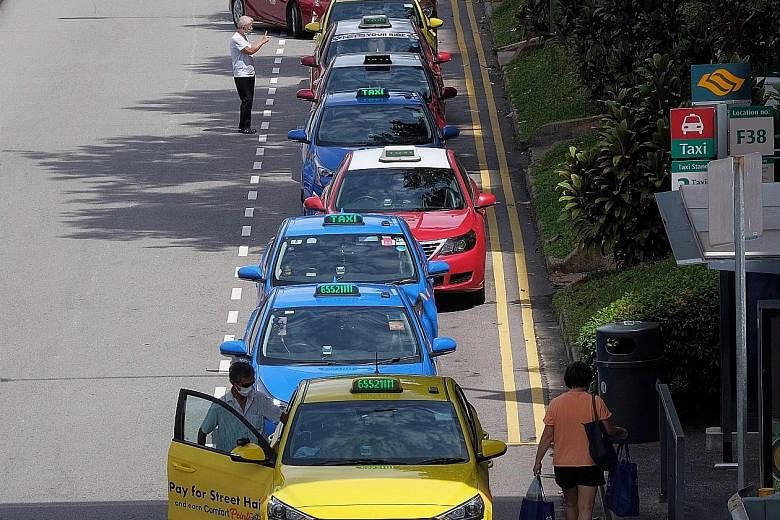The circuit breaker measures since April 7 have hammered consumer spending, with sectors ranging from transport and clothing to recreation and culture hit hard.
The few untouched spots are in healthcare services and products, alcohol and tobacco products, and housing and utilities, the Monetary Authority of Singapore (MAS) said yesterday.
It noted that visits to restaurants, malls and other recreational places have declined by about 60 per cent as at April 17, compared with the first five weeks of the year.
The measures, which saw consumer-facing services such as retail and entertainment suspended, and which MAS described as "essentially a partial shutdown of the economy", will have varying degrees of impact on consumers.
Shifts in retail spending are expected in the short term, as households increase outlays on daily necessities and reduce their discretionary expenditure, especially on luxury and durable goods.
Tchoukball coach Lin Sun Tang, 28, has been working as a full-time Deliveroo rider for the past few months.
He has not earned any income from coaching since February, after safe distancing measures meant co-curricular activities in schools were suspended.
"Now, I am working double the hours but earning less," he said, adding that he delivers food on a bicycle for about 10 hours every day.
Mr Lin's monthly income has fallen to less than $2,000, compared with the $2,500 he used to earn as a coach of four tchoukball teams.
While his income now is "enough to get by" as he lives with his parents, Mr Lin said he usually eats just one meal a day, partly due to lack of time, and also because he is trying to cut costs.
Actress Jo Tan, 37, and her husband, actor and part-time lecturer Edward Choy, 40, have had to cut their living expenses by more than half.
Most of their gigs were cancelled due to the outbreak, although Ms Tan was paid for her last show, Checkpoint Theatre's The Nuclear Family, even though it was postponed. She is now trying to diversify into online corporate training.
"Most of the tightening of our belts has been predetermined by circuit breaker measures," she said.
"We no longer take public transport or Grab, and if we do need to go anywhere, we cycle to relish the time outside. I can't go watch plays or join dance classes like I would normally do."
They bulk-buy groceries and take away meals from hawker centres.
"We make cautious choices," said Ms Tan.
MAS said food and beverage outlets near residential areas that are open for takeaway or delivery may outperform higher-end restaurants, which tend to be in business districts.
Mr Samuel Yik, founder of Chinese restaurant chain Dian Xiao Er, said revenue at its 10 suburban outlets has been around the same or better than the previous financial year.
"The volume of orders is up by about 50 per cent, but the transaction amounts are lower for takeaway and delivery orders compared with dine-in customers," he noted. "Our profit margins are also lower because of promotions and commissions to delivery platforms."
Its outlets at Marina Square and Jewel Changi Airport have been shut due to low footfall, with staff deployed at its central kitchen instead. The VivoCity outlet remains open but sales are markedly lower than at the suburban stores, even though it was previously among the top three performing outlets, thanks to tourists.
MAS noted that while global food supplies are ample, supply chain disruptions arising from containment measures could lead to a temporary rise in prices of some imported items.

